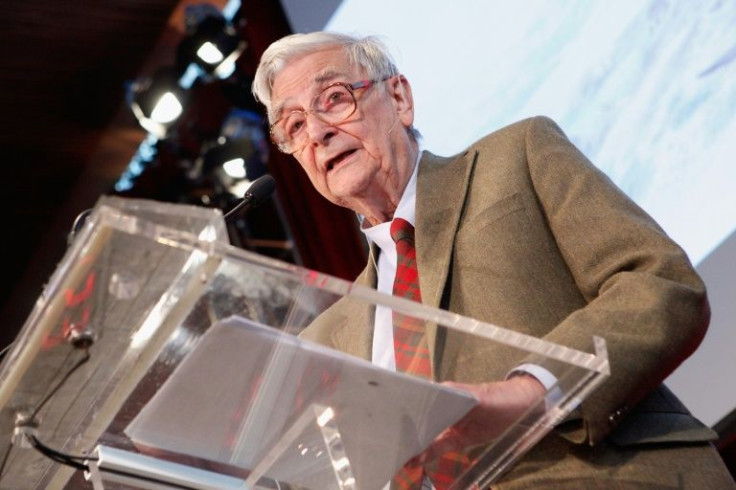Edward O. Wilson, Famed Biologist Known As 'The New Darwin,' Dead At 92

Edward O. Wilson, a Pulitzer Prize-winning author and Harvard biologist, died Sunday in Burlington, Massachusetts. He was 92.
Wilson won the National Medal of Sciences in 1976, the highest U.S. science honor "for his pioneering work on the organization of insect societies and the evolution of social behavior among insects and other animals." Wilson's work with ants led to the affectionate nickname, "the ant man."
Sad news of death of Ed Wilson. Great entomologist, ecologist, greatest myrmecologist, invented sociobiology, pioneer of island biogeography, genial humanist & biophiliac, Crafoord & Pulitzer Prizes, great Darwinian (single exception, blind spot over kin selection). R.I.P.
— Richard Dawkins (@RichardDawkins) December 27, 2021
“Ed’s holy grail was the sheer delight of the pursuit of knowledge,” Paula J. Ehrlich, chief executive and president of the E.O. Wilson Biodiversity Foundation, said in a statement. “A relentless synthesizer of ideas, his courageous scientific focus and poetic voice transformed our way of understanding ourselves and our planet.”
Wilson had been called “Darwin’s natural heir.” He authored more than 30 books. His book “On Human Nature” won a Pulitzer Prize in 1979 and “The Ants” won the Pulitzer in 1991. “The Ants” documented every aspect of an ant’s life from anatomy, physiology, the natural history of ants, and featured thousands of photographs, drawings and paintings of the insect.
In 1975, Wilson wrote in his book “Sociobiology: The New Synthesis” that human behavior is a result of genetics rather than learned experiences. The view sparked a backlash from his fellow academics and it led to many critics accusing him of being a racist and a sexist. Wilson once had a protestor dump a pitcher of water on his head while speaking at a debate in 1978.
Wilson was a massively influential environmentalist and was the first to determine ants communicate through an exchange of chemical substances called pheromones. Wilson discovered hundreds of new species as a field biologist and coined new terms like “biodiversity” and “biophilia.”
In 1996, Wilson was named to Time Magazine’s Top 25 most influential people.
Wilson wrote in his 2006 book titled “The Creation” that fields of science and religion are “the most powerful social forces on Earth,” and the two should work together to protect the planet.
"His impact extends to every facet of society," the foundation's chairman, David J. Prend, said in a statement. "He was a true visionary with a unique ability to inspire and galvanize. He articulated, perhaps better than anyone, what it means to be human."
Wilson was born on June 10, 1929, in Birmingham, Alabama, and graduated from the University of Alabama in 1949. Wilson received his Ph.D. from Harvard in 1955 and became an assistant professor at Harvard in 1956. Wilson is survived by his daughter, Catherine. His wife, Irene, preceded him in death.
© Copyright IBTimes 2025. All rights reserved.





















